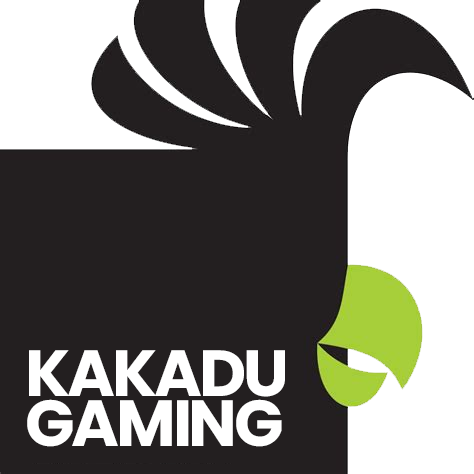A Full Guide To Gambling Marketing: The Dos And Don’ts
Quick Answer: Develop a comprehensive SEO strategy, leverage email and social media marketing, and create engaging content. Avoid misleading claims, ensure compliance, and prioritize responsible gambling messaging.
Key Takeaways:
- Develop a comprehensive marketing strategy that includes SEO, email marketing, social media, content marketing, and targeted PPC advertising to attract and retain customers.
- Understand your target audience by analyzing their demographics, preferences, and behavior, and tailor your marketing messages and offers accordingly.
- Continuously measure and optimize your marketing performance by setting clear goals, tracking key metrics, conducting A/B tests, and refining your strategy based on data-driven insights.
The Dos of Gambling Marketing: Effective Strategies for Success

Develop a Comprehensive SEO Strategy for Your Gambling Website
Search engine optimization (SEO) is crucial for gambling websites looking to attract organic traffic and improve their online visibility. Start by conducting thorough keyword research to identify the terms and phrases your target audience uses when searching for gambling-related content. Optimize your website’s on-page elements, such as titles, headings, and meta descriptions, to incorporate these keywords naturally.
To enhance your website’s technical SEO, ensure that it has a clean, crawlable structure and fast loading times. Build high-quality backlinks from reputable websites to boost your site’s authority and search engine rankings. Remember to keep your SEO practices compliant with search engine guidelines to avoid penalties.
Leverage Email Marketing to Engage and Retain Customers
Email marketing is a powerful tool for building relationships with your gambling customers and keeping them engaged with your brand. Create compelling email campaigns that highlight new offers, promotions, and exclusive bonuses to incentivize customers to return to your website.
Segment your email lists based on customer preferences, behavior, and demographics to deliver personalized content that resonates with each group. Always obtain proper consent from subscribers and adhere to anti-spam regulations to maintain a positive reputation and avoid legal issues.
Utilize Social Media Platforms to Expand Your Reach and Build Brand Loyalty

Social media platforms offer gambling businesses an excellent opportunity to expand their reach and connect with potential customers. Develop a strong brand presence on popular platforms like Facebook, Twitter, Instagram, and YouTube by sharing engaging content, running targeted ad campaigns, and interacting with your audience.
Practice social media listening to monitor conversations about your brand and industry, and provide prompt, helpful customer service to build trust and loyalty. Foster a sense of community among your followers by encouraging user-generated content and rewarding loyal customers with exclusive perks and recognition.
Invest in High-Quality, Engaging Content to Attract and Inform Potential Customers
Content marketing is essential for gambling websites looking to attract, educate, and retain potential customers. Develop a content strategy that focuses on creating informative blog posts, guides, videos, and other resources that provide value to your target audience.
Identify relevant topics that align with your brand and optimize your content for search engines and user engagement. Establish thought leadership and differentiate your brand from competitors by sharing unique insights and expert opinions. Remember, high-quality content not only attracts potential customers but also helps build trust and credibility for your gambling website.
Implement Targeted Pay-Per-Click Advertising Campaigns to Drive Traffic and Conversions

Pay-per-click (PPC) advertising is an effective way to drive targeted traffic to your gambling website and boost conversions. Platforms like Google Ads and Bing Ads allow you to create ads that appear at the top of search engine results pages for specific keywords.
Craft compelling ad copy that highlights your unique selling points and select relevant keywords to ensure your ads reach the right audience. Set up well-structured campaigns and optimize your landing pages to maximize conversions. Continuously monitor your PPC campaign performance and make data-driven adjustments to improve their effectiveness and ROI.
The Don’ts of Gambling Marketing: Common Pitfalls to Avoid

While implementing effective marketing strategies is crucial for the success of your gambling website, it’s equally important to be aware of the common mistakes and pitfalls that can harm your brand reputation and lead to legal consequences. By understanding and avoiding these pitfalls, you can navigate the challenges of the gambling industry and maintain a positive brand image.
Don’t Neglect Compliance with Legal and Regulatory Requirements in Your Target Markets
One of the most critical aspects of gambling marketing is ensuring compliance with the legal and regulatory requirements in each of your target markets. Failing to adhere to these regulations can result in severe consequences, such as hefty fines, penalties, and even the suspension of your gambling license.
Take the time to thoroughly research and understand the specific regulations that apply to your business, including age restrictions, advertising content restrictions, and mandatory responsible gambling messaging. Develop a compliance framework that ensures all your marketing activities align with these requirements and regularly review and update your policies to stay current with any changes in the regulatory landscape.
Avoid Misleading or False Advertising Claims That Can Damage Your Reputation
In the competitive world of online gambling, it may be tempting to use exaggerated or misleading claims in your marketing materials to attract more customers. However, this practice is not only unethical but also potentially illegal and can severely damage your brand’s reputation in the long run.
Avoid making false promises or misleading claims about the chances of winning, bonuses, or payouts. Instead, focus on creating transparent, accurate, and fair marketing communications that honestly represent your brand and its offerings. By prioritizing honesty and integrity in your marketing efforts, you can build trust with your customers and establish a positive brand image.
Don’t Overlook the Importance of Responsible Gambling Messaging and Resources

Responsible gambling is a critical issue in the industry, and failing to prioritize it in your marketing efforts can have serious consequences for your business and your customers. Neglecting to include responsible gambling messaging and resources in your marketing materials can lead to legal risks, damage to your brand reputation, and harm to your customers’ well-being.
Make sure to incorporate clear and prominent responsible gambling information into all your marketing communications, including information on setting limits, recognizing problem gambling signs, and accessing support services. By demonstrating a genuine commitment to responsible gambling, you can enhance customer trust, reduce legal risks, and contribute to a safer and more sustainable gambling environment.
Refrain from Partnering with Untrustworthy or Low-Quality Affiliates and Advertisers
In the world of online gambling marketing, affiliates and advertisers can be valuable partners in expanding your reach and driving traffic to your website. However, partnering with untrustworthy or low-quality affiliates can expose your brand to significant risks, including association with unethical or illegal marketing practices.
Before entering into any partnerships, thoroughly vet potential affiliates and advertisers by checking their reputation, examining their marketing materials, and ensuring they comply with all relevant regulations. Be prepared to terminate relationships with partners who engage in questionable practices or fail to meet your standards for ethics and compliance. By carefully selecting and monitoring your marketing partners, you can protect your brand’s reputation and avoid legal liabilities.
Understanding Your Target Audience: Insights for Effective Gambling Marketing
To create effective gambling marketing campaigns that resonate with your ideal customers, it’s essential to have a deep understanding of your target audience. By analyzing their demographics, preferences, behavior, and motivations, you can craft personalized messages and offers that attract, engage, and retain valuable players.
Analyze the Demographics, Preferences, and Behavior of Your Ideal Customer
The first step in understanding your target audience is to define and analyze your ideal customer profile. Consider factors such as age, gender, income, location, and gaming preferences to create a detailed picture of the types of players you want to attract.
Conduct market research using a combination of methods, such as:
- Surveys and questionnaires
- Focus groups and interviews
- Analysis of customer data and feedback
Use this information to create buyer personas that represent your ideal customers, including their goals, challenges, and preferences. Regularly update and refine these personas based on new data and insights to ensure your marketing strategies remain relevant and effective.
Segment Your Audience Based on Factors Such as Risk Tolerance and Playing Frequency
Once you have a clear understanding of your ideal customer profile, it’s time to segment your audience based on key factors that influence their gambling behavior and preferences. Two important factors to consider are risk tolerance and playing frequency.
Risk tolerance refers to a player’s willingness to take risks and their comfort level with potential losses. Segmenting your audience based on risk tolerance allows you to create targeted campaigns and offers that appeal to different types of players, such as:
- High rollers who are comfortable with larger bets and potential losses
- Casual players who prefer lower stakes and less risk
Similarly, segmenting your audience based on playing frequency helps you tailor your marketing messages and offers to players with different levels of engagement. For example:
- Daily players may respond well to frequent, smaller promotions and rewards
- Weekly or monthly players may appreciate larger, less frequent incentives to encourage more regular play
Use data and analytics to identify and refine these audience segments over time, ensuring that your marketing strategies remain effective and relevant to your target audience.
Tailor Your Marketing Messages and Offers to Appeal to Specific Player Types and Interests

With a clear understanding of your audience segments, you can create personalized marketing messages and offers that resonate with specific player types and interests. Consider the unique motivations and preferences of each player type, such as:
- Sports enthusiasts who may respond well to promotions tied to major sporting events or competitions
- Slot machine fans who may appreciate free spin offers or exclusive access to new games
- Poker aficionados who may value tournaments, leaderboards, and opportunities to compete against other skilled players
Craft compelling value propositions that align with the needs and desires of each player type, highlighting the benefits and experiences that are most relevant to them. Use a combination of text, images, and videos to create engaging and persuasive marketing content that captures their attention and encourages them to take action.
Conduct Regular Market Research to Stay Attuned to Evolving Player Needs and Trends
The gambling industry is constantly evolving, with new games, technologies, and player preferences emerging all the time. To stay ahead of the curve and maintain a competitive edge, it’s crucial to conduct regular market research and stay attuned to changing trends and customer needs.
Use a combination of primary research methods, such as surveys, focus groups, and interviews, to gather direct feedback and insights from your target audience. Complement this with secondary research, such as industry reports, competitor analysis, and market data, to gain a broader perspective on the gambling landscape.
Use your market research findings to adapt and optimize your marketing strategies over time, ensuring that your messages, offers, and promotions remain relevant and compelling to your target audience. By staying agile and responsive to evolving player needs and trends, you can build lasting relationships with your customers and drive long-term success for your gambling business.
Choosing the Right Marketing Channels and Tactics for Your Gambling Business
With a wide range of marketing channels and tactics available, it’s crucial to select the most effective combination for your gambling business. By carefully considering factors such as your target audience, budget, and marketing goals, you can develop a comprehensive strategy that maximizes your return on investment and drives sustainable growth.
Assess the Potential of Various Online Advertising Networks, Such as Exoclick, Trafficjunky, and PropellerAds
Online advertising networks can be powerful tools for promoting your gambling website and reaching new audiences. Popular networks like Exoclick, Trafficjunky, and PropellerAds offer a variety of targeting options, ad formats, and pricing models to suit different business needs and budgets.
When evaluating these networks, consider factors such as:
- The quality and relevance of their traffic sources
- The level of control and customization available for targeting and ad placement
- The cost-effectiveness and ROI potential of their pricing models (e.g., CPM, CPC, CPA)
- Their compliance with gambling advertising regulations and brand safety standards
By carefully selecting the right networks and continually optimizing your campaigns based on performance data, you can effectively drive qualified traffic to your website and acquire new players.
Explore the Benefits of Native Advertising and Sponsored Content Partnerships
Native advertising and sponsored content partnerships offer a more subtle and engaging way to promote your gambling brand than traditional display ads. By seamlessly integrating your brand message into the content and design of reputable publishers’ websites, you can capture the attention of potential players and build trust and credibility.
Some effective native advertising formats to consider include:
- Sponsored articles that provide valuable information or entertainment related to gambling
- In-feed ads that appear alongside organic content and blend in with the user experience
- Content recommendations that suggest your website or articles to users based on their interests
When pursuing native advertising and sponsored content partnerships, it’s important to:
- Partner with reputable publishers that align with your brand values and target audience
- Ensure that sponsored content is clearly labeled and complies with relevant regulations
- Focus on creating high-quality, informative, and engaging content that provides value to readers
Consider Implementing Referral and Loyalty Programs to Encourage Player Retention and Advocacy

Referral and loyalty programs can be powerful tools for encouraging existing players to keep coming back and refer new players to your gambling website. By offering attractive incentives and rewards, you can foster a sense of community and loyalty among your player base.
Some effective strategies for designing referral and loyalty programs include:
- Offering bonuses or free plays to players who refer new customers to your website
- Implementing a tiered loyalty program that rewards players based on their playing frequency or spending
- Providing exclusive perks and experiences to high-value players, such as VIP events or personalized customer support
When implementing these programs, it’s crucial to ensure that they are:
- Easy to understand and participate in
- Attractive and valuable to your target audience
- Compliant with relevant gambling regulations and consumer protection laws
Evaluate the Role of Traditional Marketing Channels, Such as TV, Radio, and Print Advertising, in Your Overall Strategy
While digital channels have become increasingly important in gambling marketing, traditional marketing channels like TV, radio, and print advertising can still play a valuable role in your overall strategy. These channels can help you:
- Build brand awareness and credibility among a wider audience
- Reach specific demographics or geographic regions that may be harder to target online
- Complement and reinforce your digital marketing efforts through consistent messaging and branding
However, it’s important to carefully consider the limitations and challenges of traditional advertising for gambling brands, such as:
- Higher costs and lower ROI compared to digital channels
- Limited ability to track and measure the effectiveness of campaigns
- Strict regulations on ad content, placement, and timing, which can vary by jurisdiction
By carefully evaluating the potential of traditional marketing channels and balancing them with your digital efforts, you can develop a comprehensive and effective marketing strategy that maximizes your reach and impact.
Measuring and Optimizing Your Gambling Marketing Performance

To ensure the success of your gambling marketing efforts, it’s essential to establish a data-driven approach to measuring and optimizing your performance. By setting clear goals, tracking key metrics, and using insights to inform your strategies, you can continually improve your marketing effectiveness and drive better results for your business.
Establish Clear, Measurable Goals and Key Performance Indicators (KPIs) for Your Marketing Campaigns
The foundation of any successful marketing optimization process is setting specific, measurable, achievable, relevant, and time-bound (SMART) goals. These goals should align with your overall business objectives and provide a clear framework for evaluating the performance of your gambling marketing campaigns.
Some common goals and KPIs for gambling marketing include:
- Increasing website traffic and user engagement
- Improving conversion rates for new player sign-ups and deposits
- Reducing customer acquisition costs and increasing customer lifetime value
- Boosting revenue and profitability from specific games or player segments
When setting your goals and KPIs, it’s important to establish baseline benchmarks and realistic targets based on your current performance and industry standards. Regularly review and adjust your goals based on actual performance data and changing market conditions to ensure they remain relevant and achievable.
Implement Robust Tracking and Analytics Tools to Monitor User Behavior and Conversion Rates
To effectively measure and optimize your gambling marketing performance, you need to have robust tracking and analytics tools in place. Platforms like Google Analytics provide valuable insights into user behavior, traffic sources, and conversion rates across your website and marketing campaigns.
When implementing tracking and analytics tools, be sure to:
- Set up proper tracking codes on all relevant pages and events
- Define clear conversion goals and funnels for key actions, such as new player sign-ups or deposits
- Create custom reports and dashboards to monitor critical metrics and KPIs
- Regularly review and analyze your data to identify trends, patterns, and areas for improvement
By leveraging the power of analytics, you can gain a deeper understanding of your customers’ journeys and preferences, and make data-driven decisions to optimize your marketing strategies and tactics.
Conduct Regular A/B Testing to Optimize Landing Pages, Ad Copy, and Calls-to-Action

A/B testing is a powerful technique for optimizing key elements of your gambling marketing campaigns, such as landing pages, ad copy, and calls-to-action. By comparing the performance of different variations of these elements, you can identify the combinations that drive the best results and continually improve your marketing effectiveness.
To conduct effective A/B tests, follow these best practices:
- Start with a clear hypothesis and test objective, such as improving landing page conversion rates
- Create distinct variations of the element you want to test, such as different headlines or button colors
- Use a statistically significant sample size and run the test for a sufficient duration to obtain reliable results
- Analyze the test results and implement the winning variation across your campaigns
- Document your findings and use them to inform future tests and optimizations
By making A/B testing a regular part of your marketing optimization process, you can continuously refine your strategies and tactics based on real-world data and user feedback.
Analyze Your Marketing Spend and Return on Investment (ROI) to Inform Future Budget Allocation Decisions

To ensure the efficiency and profitability of your gambling marketing efforts, it’s crucial to analyze your marketing spend and return on investment (ROI) across different channels and campaigns. By understanding which initiatives are driving the best results for your business, you can make informed decisions about where to allocate your budget and resources in the future.
To calculate ROI for your marketing campaigns, use the following formula:
ROI = (Revenue – Cost) / Cost
For example, if a campaign generates $10,000 in revenue and costs $5,000 to run, the ROI would be:
($10,000 – $5,000) / $5,000 = 1, or 100%
Use ROI data to compare the performance of different marketing channels, such as search engine marketing, social media advertising, or affiliate partnerships. Identify the channels and campaigns with the highest ROI and consider reallocating budget from underperforming initiatives to these high-value opportunities.
Continuously Refine Your Marketing Strategy Based on Data-Driven Insights and Industry Best Practices
To stay ahead in the competitive and ever-evolving world of gambling marketing, it’s essential to continuously refine and update your strategies based on data-driven insights and industry best practices. By staying attuned to the latest trends, technologies, and regulations, you can identify new opportunities, address emerging challenges, and maintain a competitive edge.
Some ways to stay informed and adaptable include:
- Regularly reviewing and analyzing your marketing performance data to identify areas for improvement
- Conducting ongoing market research to understand changing customer needs and preferences
- Attending industry conferences and webinars to learn about new strategies and technologies
- Participating in online forums and networks to exchange ideas and best practices with other marketing professionals
- Monitoring competitor activities and adapting your strategies to differentiate your brand and offerings
By embracing a culture of continuous learning and optimization, you can ensure that your gambling marketing efforts remain effective, efficient, and aligned with your business goals in the long run.
Frequently Asked Questions
Question 1:
How can I ensure that my gambling marketing campaigns comply with the legal requirements in different jurisdictions?
Answer: To ensure compliance, thoroughly research the specific regulations in each jurisdiction you target, including advertising content restrictions, age limits, and mandatory responsible gambling messaging. Develop a robust compliance framework and regularly review your policies to stay up-to-date with any regulatory changes.
Question 2:
What are some effective ways to differentiate my gambling brand from competitors in a crowded market?
Answer: To differentiate your brand, focus on creating unique and compelling value propositions that highlight your specific strengths and offerings. Conduct market research to identify underserved niches or emerging trends, and tailor your marketing messages and promotions to appeal to these specific segments.
Question 3:
How can I balance the need for aggressive marketing with the importance of promoting responsible gambling?
Answer: Integrate clear and prominent responsible gambling messaging into all your marketing communications, including information on setting limits, recognizing problem gambling signs, and accessing support services. Ensure that your marketing practices align with industry best practices and prioritize the well-being of your customers.
Question 4:
What are some emerging technologies or trends that I should consider incorporating into my gambling marketing strategy?
Answer: Some emerging trends to consider include personalized and data-driven marketing, mobile-first optimization, and the use of artificial intelligence and machine learning for customer segmentation and targeting. Stay informed about new technologies and platforms, and carefully evaluate their potential benefits and risks before implementing them into your strategy.
Question 5:
How often should I review and update my gambling marketing strategy to ensure its effectiveness?
Answer: It’s recommended to review and update your gambling marketing strategy at least quarterly, based on performance data, market trends, and regulatory changes. Set regular intervals for analyzing your results, gathering customer feedback, and conducting competitor research to inform your strategic decisions and keep your marketing efforts agile and adaptive.
